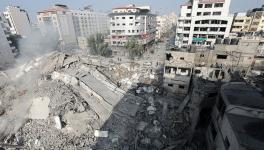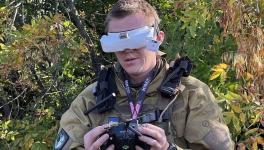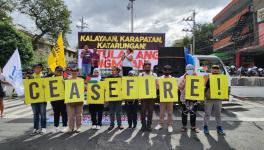Boom - A Grumble
In 2010, the UN special representative on extrajudicial executions Philip Alston released a 29 page report on the growing use of deadly drone, or unmanned, aircraft by the United States. In a statement that accompanied the report, Mr. Alston described the political problem for the US, “I’m particularly concerned that the United States seems oblivious to this fact when it asserts an ever-expanding entitlement for itself to target individuals across the globe. But this strongly asserted but ill-defined license to kill without accountability is not an entitlement which the United States or other states can have without doing grave damage to the rules designed to protect the right to life and prevent extrajudicial executions.” In the quiet rooms of the UN, such language is rare: it asserted that the continual US use of drones is not only a violation of current norms, but it is a threat to the architecture of conflict resolution and the rules of war.
The US response was unsurprising: it was at war, and in war, such attacks are legal. Since the US has claims that its War on Terror has no identifiable battlefield, it feels emboldened to use its drones to attack targets in regions where it is not directly at war, such as Pakistan, Yemen, Somalia and so on. It is this inflation that worried the UN.
Since 2005, the US drones have killed 2175 people in Pakistan. Those killed are always characterized as “suspected militants.” There is little verification about these real identities. Court cases by civilian victims of the drone attacks, helped along by the campaigner Reprieve, have not been able to make much of a dent. The Bureau of Investigative Journalism (BIJ) has recent reported that the US has increased its use of drones in Yemen, despite the change of its president. The US has consistently denied that its cruise missile killed forty-four civilians on December 17, 2009 in southern Yemen (eight families were wiped out by the attack). A Yemeni parliamentary committee studied the attack. A spokesperson for Sheikh Himir Al-Ahmar, the commission’s chairman and now Yemen’s deputy speaker, told the BIJ, “The families of the victims were indeed paid appropriate compensation by the Yemeni Government (according to the standard of compensations given out to victims in Yemen). The American authorities did not get involved in this process in any way.”
There is appropriate hue and cry about the killing of sixteen civilians in Afghanistan by Army Staff Sgt Robert Bales. There is, however, no word on the murder of ordinary people by drones. They create little global outrage. The drones have no names like Bales. Their pilots are faceless young people who sit in Nevada or upstate New York. They drink a Coke, play with their computers which send kill messages to their drones. They will have nightmares. With Drones there are no stories. No narratives to create outrage. Just bodies of dead people. They have no history.
Yesterday a drone killed four people in Miranshah in northern Pakistan. The Pakistani authorities claim that these are Uzbek militants. There is no confirmation. They might have been anyone.
In 1928, at a British base in Miranshah, T. E. Lawrence (Lawrence of Arabia) wrote, “Miranshah is busy; a moral operation is being carried out in the hills to the SW. The morals are ours, of course.” Little has changed.
Get the latest reports & analysis with people's perspective on Protests, movements & deep analytical videos, discussions of the current affairs in your Telegram app. Subscribe to NewsClick's Telegram channel & get Real-Time updates on stories, as they get published on our website.
























